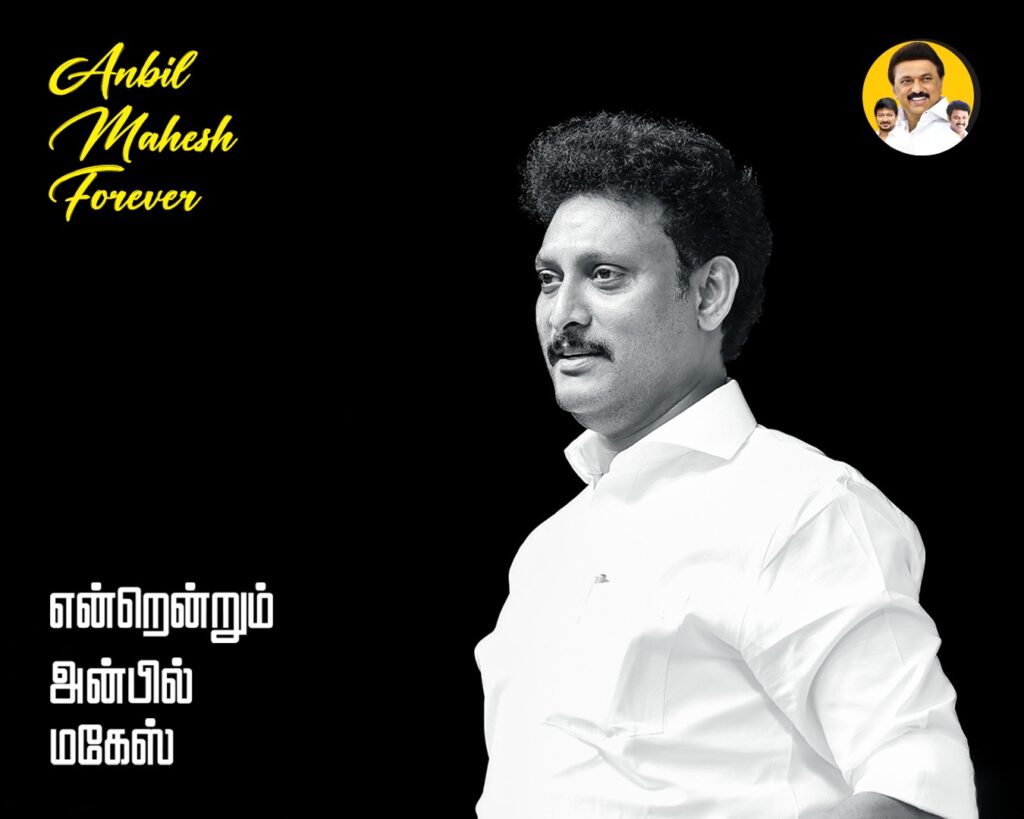By firmly opposing the National Education Policy, which imposes a three-language formula and pushes caste-based education, the Government of Tamil Nadu has formulated an education policy tailored specifically for our state. On 8 August, the Honourable Chief Minister Thiru M. K. Stalin released the State Education Policy–2025, opening a new path for Tamil Nadu’s education sector.
Designed on the foundation of Tamil, the Tamil people, and Tamil culture, this policy integrates Artificial Intelligence (AI), modern technologies, and skill development to meet future needs.
The objective of this policy is to transform school education into a vibrant, student-centred, skill-based system. Responding directly to questions raised by teachers and students about its various aspects, the Minister for School Education, Anbil Mahesh Poyyamozhi, has been providing clear explanations to ensure the public gains a thorough understanding.
Equitable Education!
மாநில கல்விக் கொள்கை - 2025 சமச்சீர் கல்வி முறையில் எத்தகைய மாற்றத்தை ஏற்படுத்தும்?
பள்ளிக் கல்வித் துறையின் முதுகெலும்பு சமச்சீர் கல்வி முறைதான். அதனை வலுப்படுத்தும் விதமாக மாநில கல்விக் கொள்கையை உருவாக்கியுள்ளோம். திறன் சார்ந்த கற்றல், ஒருங்கிணைந்த கலைத்திறன் வளர்ச்சி தொழில்நுட்பக் கல்வி மற்றும் வாழ்வியல் திறன் சார்ந்த கற்பித்தல் என ஒவ்வொரு மாணவரும் முழுமையான சமத்துவமான கல்வியினைப் பெறுவதை மாநில கல்விக் கொள்கை – 2025 உறுதி செய்யும்.
Education for All!
What is the difference between the National Education Policy and our State Education Policy?
The National Education Policy (NEP 2020) imposes a language mandate requiring students to learn three languages. In contrast, the Tamil Nadu Government’s State Education Policy–2025 firmly upholds the two-language policy of Tamil and English.
நாம் 10 மற்றும் +2ம் வகுப்புகளில் பொதுத்தேர்வு முறையைப் பின்பற்றுகிறோம். NEP 2020 மூன்றாம் வகுப்பிலிருந்தே பொதுத் தேர்வுகளை உருவாக்கி மாணவர்களை மன அழுத்தத்துக்கு ஆளாக்குகிறது.
We uphold a scientific outlook rooted in the path of social justice. In contrast, the NEP seeks to hand over education to religious fundamentalists and aims to make mythology a subject in the name of a Vedic-era, backward-looking India.
நமது இலக்கு எதிர்காலத்தை நோக்கியது. NEP-2020 மாணவச் செல்வங்களை குலத்தொழிலில் தள்ளி அவர்கள் காலில் சங்கிலியைப் பூட்டுகிறது.
Making High-Tech Education Possible!
As stated in the State Education Policy – 2025, how is it possible to introduce advanced technology labs like AI and Robotics in rural schools?
TN SPARK திட்டம் வட்டார அளவில் விரிவாக்கம் செய்யப்பட்டு, கிராமப்புற பள்ளிகளுக்கும் உயர் தொழில்நுட்ப வசதிகள் கிடைப்பது உறுதி செய்யப்படுகிறது.
Through the Vanavil Mandram, students in remote areas are being provided with opportunities to gain knowledge in robotics technology and develop skills to carry out scientific research.
Progress, Not Just Change!
Will the State Education Policy bring changes to the examination system?
Board examinations will shift from a rote-learning approach to an application- and skills-based system.
To reduce stress before the Grade 12 public examination, Grade 11 has been designated as a preparatory year, serving as a training ground to equip students for the final board exams.
No More Stress!
How will assessment and examinations change under the Tamil Nadu State Education Policy?
From now on, assessments will be based not solely on memorisation but on understanding, clarity, problem-solving, and practical application.
Instead of an exam system that causes stress, public examinations for Classes 1 to 8 will follow the Formative Assessment model, testing not only learning performance but also global life skills.
Samacheer Kalvi will Continue!
Will the Samacheer Kalvi textbooks be replaced?
No. Samacheer Kalvi textbooks will remain the same base material. However, they will be periodically updated every three years to include modern examples, local relevance, digital integration, and skill-based content. Supplementary materials, both printed and digital, will enrich classroom learning.
A Two-Language Policy that Opens Up Opportunities!
Will the two-language policy limit students’ opportunities compared to the National Education Policy 2020 three-language model?
Absolutely not. The two-language policy ensures strong functional proficiency in both Tamil and English, which are essential for cultural identity and global opportunities.
Additional languages are available as optional subjects, but no child will be burdened with the compulsory third language.
பாடங்கள் அல்ல… மாணவர்களே கல்வியின் மையம்!
What are the main differences between the Tamil Nadu State Education Policy–2025 and the current system?
The existing Samacheer Kalvi system offers a strong and equitable educational framework. However, we face challenges such as learning gaps after the COVID pandemic, limited digital integration, and the need for future-oriented skills.
The Tamil Nadu State Education Policy–2025 proposes a three-year revision cycle for the syllabus, and integrates 21st-century skills, Artificial Intelligence, climate literacy, and career guidance.
It also prioritises modernising infrastructure and strengthening teacher training. Most importantly, we will shift from a textbook-centred approach to a learner-centred, skill-based education model.
Changes will be gradual!
Will the State Education Policy curriculum be implemented this year, and will teachers and students benefit from it right away?
No. The changes will be carried out gradually, in stages. The core subjects of 'Samacheer Kalvi' will continue. However, lessons will become more activity-based and enriched with skill development and technological resources. In addition, through platforms such as Payirchi Paarvai, teachers will be able to enhance their skills and adapt smoothly to the new educational planning in line with the required changes.
Also Read: Daughter of Light: Savitribai Phule
Employment-Oriented Education!
How will the Tamil Nadu State Education Policy prepare students for employment?
Our goal is not just to prepare students for various examinations but also to equip them for their future lives and employment opportunities.
From Class 9 onwards, students will receive career guidance, along with training that uses local industry resources. We are introducing subjects suited to the modern era, such as Artificial Intelligence (AI), robotics, coding, and courses aimed at developing entrepreneurs.

Follow us
Whatsapp Channel – bit.ly/anbilmahesh4evr
X ID – https://x.com/AnbilMahesh4evr
Youtube – https://youtube.com/@AnbilMahesh4evr
Facebook – https://fb.com/AnbilMahesh4evr
Instagram – https://instagram.com/AnbilMahesh4evr

Pingback: State Education Policy: A Blueprint for Tomorrow’s Tamil Nadu!